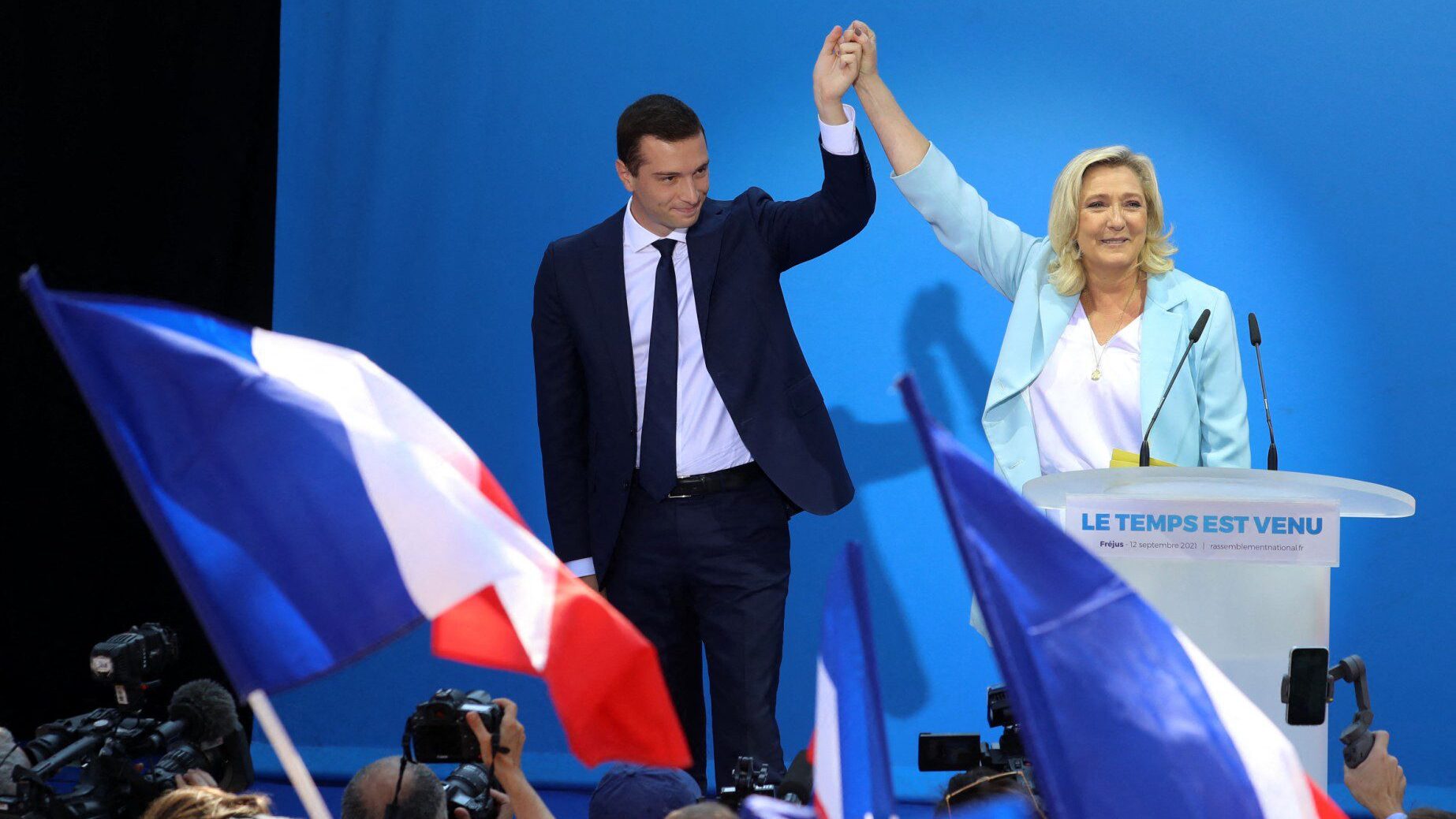
Rassemblement National (RN) President Jordan Bardella and former President Marine Le Pen
Photo: Valery HACHE / AFP
National conservative parties continue to make sizable gains across Europe, with the French populist Right especially looking to break all previous records during June’s EU elections, according to claims by a fresh poll.
The “nationally and politically representative” survey, conducted by Portland Communications of over a thousand voters across five countries each (France, Italy, Germany, Poland, and the Netherlands) says that populists are looking at major breakthroughs nearly everywhere.
According to the poll, seen by Politico, France, in particular, is bracing for a political earthquake. Marine Le Pen’s Rassemblement National (RN)— run by MEP Jordan Bardella since 2022—is leading the charts with 33%, far ahead of Macron’s liberal Ensemble coalition (made of Horizons, MoDem and the President’s own Renaissance party), which was measured by the U.S. pollster at only 14%.
Add to that the other sovereigntist party, Éric Zemmour and Marion Maréchal’s Reconquête’s predicted 6%, and it turns out that nearly 4 in 10 French voters polled place their trust in the populist Right to reform the EU’s leftist agenda in the next five years.
Although the two parties will sit in different transnational political groups in the EU Parliament—RN is a long-standing member of the Identity and Democracy (ID) group, while Reconquête has recently joined European Conservatives and Reformists (ECR)—both are national conservative, sovereigntist, and strongly anti-migration parties and are expected to work together closely during the next term.
Similar tendencies were observed in nearly all the other countries that were surveyed.
In Germany, the sovereigntist Alternative für Deutschland (AfD) remains the second most popular party after the center-right Christian Democrat bloc (CDU/CSU) but is polling ahead of both the ruling socialists (SPD) and greens and is set to gain 17% at least—Politico’s Poll of Polls currently puts AfD’s popularity at 20%.
“The EU is heading into these elections with citizens in a deeply pessimistic mood,” Portland Communications CEO Victoria Dean explained, adding that voters were “concerned about issues which are difficult to fix.”
The cost-of-living crisis was chosen as the number one concern in all but one of the surveyed countries—the Dutch remain primarily preoccupied with the housing crisis. Immigration, however, is a close second in France, Germany, and the Netherlands, while health care was the second-most cited issue in Poland and Italy.
In most of the countries surveyed, the majority of respondents were deeply unsatisfied with their governments. The highest proportion of unhappy voters were in France and Germany, where 68% and 66%, respectively, said their country was “on the wrong path.”
According to the most recent data in the Politico’s aggregate poll, Brussels’ two conservative blocs—ID and ECR—will increase their number of seats to 88 and 77, respectively, ending in 3rd and fifth place. These numbers, however, don’t take into account more prospective members joining the parties, such as Hungary’s Fidesz which is set to bring 12-14 seats to ECR, or the Romanian AUR, whose 7-8 MEPs will likely end up strengthening the ID group.
If the survey results are reflected in the June election outcomes, there is a real chance that national conservatives will be the third and fourth largest blocs in the European Parliament after the EU elections, remaking the power of balance and bringing normality back into the heart of Europe.
